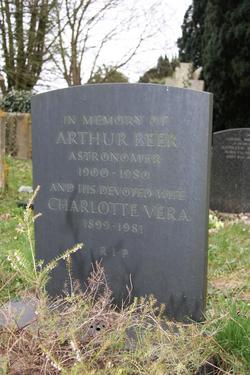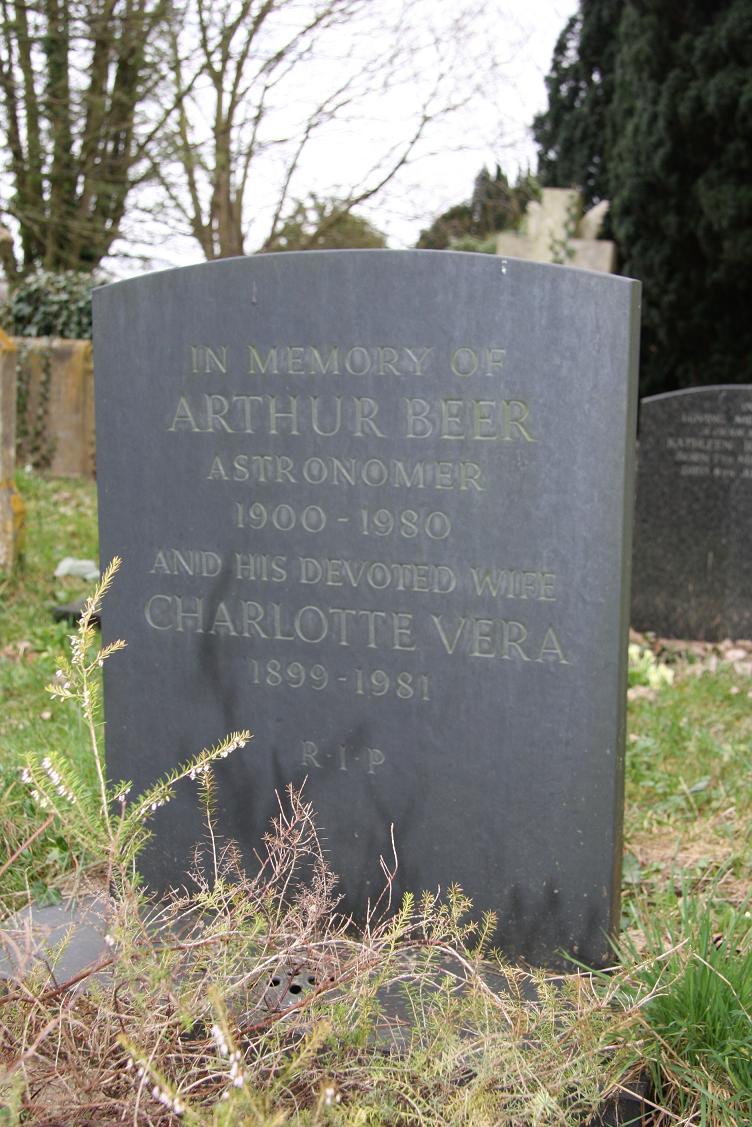He was born in Reichenberg, Bohemia, the only son of Professor Johan Beer, a secondary teacher of arts and crafts, and Olga née Pollak. Arthur completed his secondary education in 1918 in Reichenberg after returning from military service in WWI. His university studies were postponed after he contracted polio in 1924 and later received a necessary operation to enable him to walk.
He married Charlotte Vera Popielarski in 1925 and received his Ph.D. in 1927 with the dissertation "Zur Charakterisierung der spektroskopischen Doppelsterne" ("On the characterization of spectroscopic binaries"). Beer then worked as a secondary assistant on radiation of planets and on star observation reductions for the second catalogue of the Astronomische Gesellschaft, at the Breslau University Observatory through 1928. In 1929 he worked in Hamburg, Germany at the Deutsche Seewarte (German Maritime Observatory) as a tide astronomer and produced a program for the North German Radio Station called "Aus Natur und Technik" ("News from Nature and Technology") among the first scientific radio program series ever aired. In the spring of 1930 he left the Maritime Observatory. He next participated in the installation of the 'Modern Times' section of a permanent exhibition in the new Hamburg Planetarium under art historian Fritz Saxl, Director of the Kulturwissenschaftliche Bibliothek Warburg (Warburg Cultural Library). Beer gave frequent lectures at the planetarium, was a columnist for various newspapers both within Germany and abroad, and continued producing his radio programs, eventually aired in Germany, Austria and Switzerland. He also supplemented his income with lectures in Germany and in Czechoslovakia. The Warburg Cultural Library eventually had to be relocated, under the disparagement of Nazism, to London, in 1933, where it became known as the Warburg Institute.
He was born in Reichenberg, Bohemia, the only son of Professor Johan Beer, a secondary teacher of arts and crafts, and Olga née Pollak. Arthur completed his secondary education in 1918 in Reichenberg after returning from military service in WWI. His university studies were postponed after he contracted polio in 1924 and later received a necessary operation to enable him to walk.
He married Charlotte Vera Popielarski in 1925 and received his Ph.D. in 1927 with the dissertation "Zur Charakterisierung der spektroskopischen Doppelsterne" ("On the characterization of spectroscopic binaries"). Beer then worked as a secondary assistant on radiation of planets and on star observation reductions for the second catalogue of the Astronomische Gesellschaft, at the Breslau University Observatory through 1928. In 1929 he worked in Hamburg, Germany at the Deutsche Seewarte (German Maritime Observatory) as a tide astronomer and produced a program for the North German Radio Station called "Aus Natur und Technik" ("News from Nature and Technology") among the first scientific radio program series ever aired. In the spring of 1930 he left the Maritime Observatory. He next participated in the installation of the 'Modern Times' section of a permanent exhibition in the new Hamburg Planetarium under art historian Fritz Saxl, Director of the Kulturwissenschaftliche Bibliothek Warburg (Warburg Cultural Library). Beer gave frequent lectures at the planetarium, was a columnist for various newspapers both within Germany and abroad, and continued producing his radio programs, eventually aired in Germany, Austria and Switzerland. He also supplemented his income with lectures in Germany and in Czechoslovakia. The Warburg Cultural Library eventually had to be relocated, under the disparagement of Nazism, to London, in 1933, where it became known as the Warburg Institute.
Family Members
Sponsored by Ancestry
Advertisement
Records on Ancestry
Sponsored by Ancestry
Advertisement




